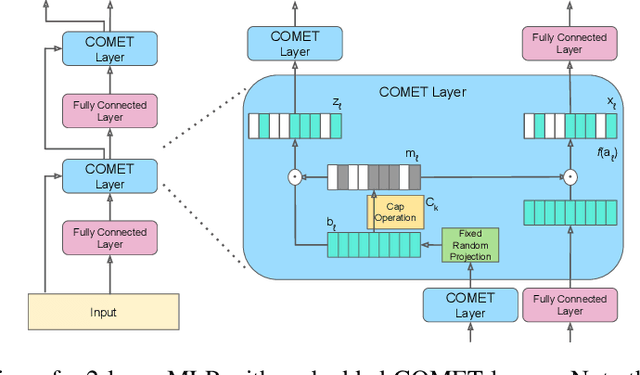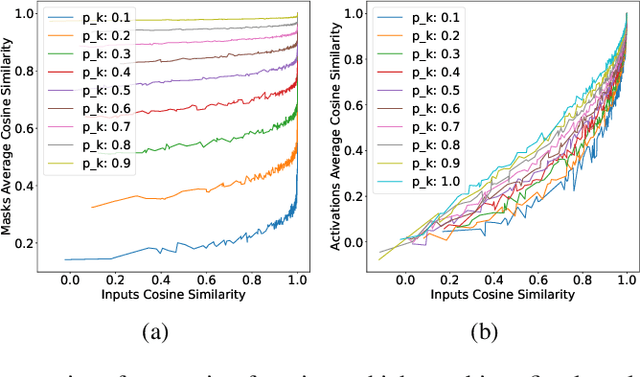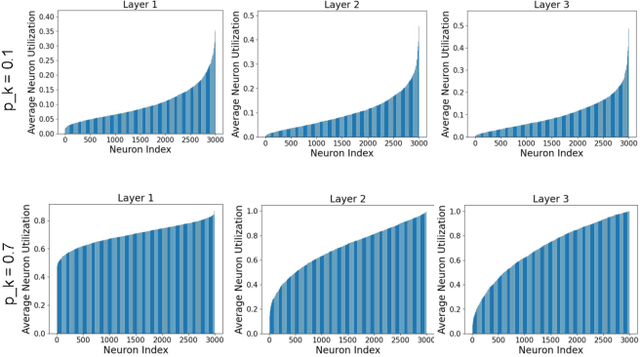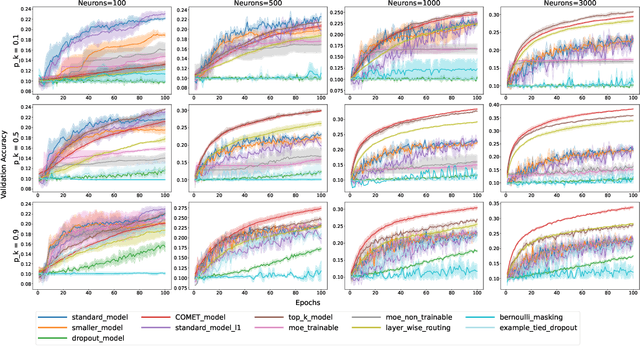More Experts Than Galaxies: Conditionally-overlapping Experts With Biologically-Inspired Fixed Routing
Paper and Code
Oct 10, 2024



The evolution of biological neural systems has led to both modularity and sparse coding, which enables efficiency in energy usage, and robustness across the diversity of tasks in the lifespan. In contrast, standard neural networks rely on dense, non-specialized architectures, where all model parameters are simultaneously updated to learn multiple tasks, leading to representation interference. Current sparse neural network approaches aim to alleviate this issue, but are often hindered by limitations such as 1) trainable gating functions that cause representation collapse; 2) non-overlapping experts that result in redundant computation and slow learning; and 3) reliance on explicit input or task IDs that impose significant constraints on flexibility and scalability. In this paper we propose Conditionally Overlapping Mixture of ExperTs (COMET), a general deep learning method that addresses these challenges by inducing a modular, sparse architecture with an exponential number of overlapping experts. COMET replaces the trainable gating function used in Sparse Mixture of Experts with a fixed, biologically inspired random projection applied to individual input representations. This design causes the degree of expert overlap to depend on input similarity, so that similar inputs tend to share more parameters. This facilitates positive knowledge transfer, resulting in faster learning and improved generalization. We demonstrate the effectiveness of COMET on a range of tasks, including image classification, language modeling, and regression, using several popular deep learning architectures.
 Add to Chrome
Add to Chrome Add to Firefox
Add to Firefox Add to Edge
Add to Edge